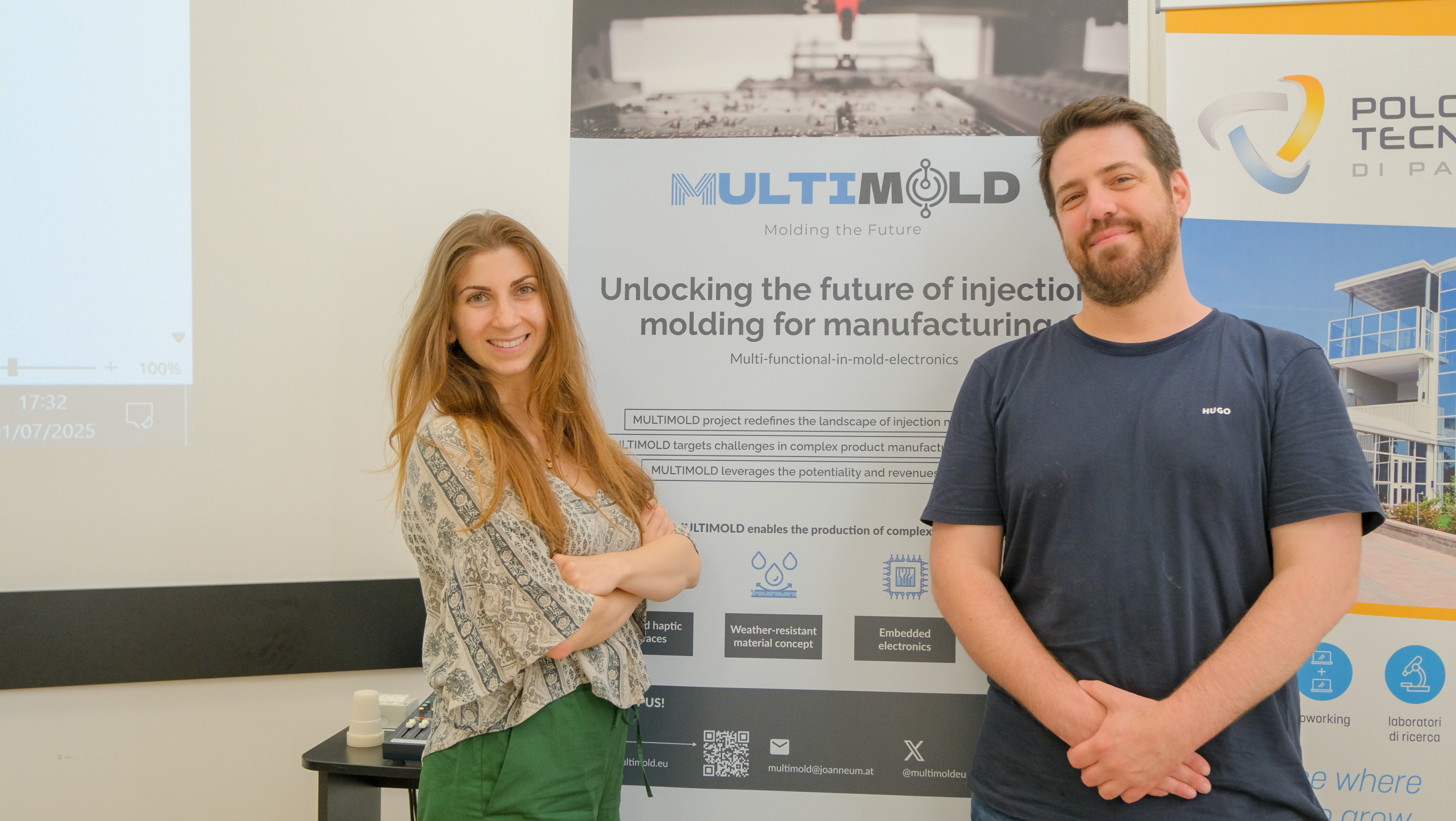Life Cycle Assessment (LCA) is a cornerstone of sustainable research and development in Europe, as sustainability increasingly becomes a critical objective in project funding and design. LCA enables researchers to systematically assess environmental impacts at every stage of a product's life, supporting informed decision-making and enhancing environmental outcomes from the earliest stages of development. While MULTIMOLD is advancing Injection Molding Technology for complex products, sustainability plays a central part in the MULTIMOLD Revolution. For this reason, one of MULTIMOLD’s key objectives is to test a different approach to LCAs in research projects to overcome persistent issues such as limited data availability and fragmented partnerships. We brought our experience to the latest SETAC Europe 26th LCA Symposium in Sweden.
In Europe, environmental assessment procedures such as the Environmental Impact Assessment (EIA) and Strategic Environmental Assessment (SEA) Directives further ensure that projects and public programs are subject to rigorous environmental scrutiny. These directives mandate that plans with significant environmental implications undergo an assessment before approval, promoting sustainability and enabling public consultation. LCA's role in these assessments is particularly vital in projects involving emerging technologies, where identifying environmental "hotspots" early on is essential to minimizing long-term impacts. Yet, despite its importance, LCA for emerging technologies faces notable challenges, particularly in data acquisition, due to the limited availability and reliability of environmental data.
In MULTIMOLD we are contributing to the improvement of LCAs in research projects by involving LCA practitioners early, fostering environmental knowledge, leveraging stakeholder expertise, and streamlining data collection, projects can optimize LCA practices and make more sustainable engineering decisions. Sarah-Jane Baur, from the Fraunhofer IZM presented the paper “Emerging Technologies in European Research: Enhancing Sustainable Engineering Practices & Data Collection for Life Cycle Assessments – A Case Study” at the SETAC Europe 26th LCA Symposium in Sweden on 21 October MULTIMOLD contribution to the field.
Through MULTIMOLD’s example, European research initiatives can better address environmental considerations, contributing to the development of responsible, sustainable technology.
Challenges in Conducting LCA for Emerging Technologies

LCA practices encounter unique obstacles in research and development (R&D) projects, especially for emerging technologies with limited historical data. Unlike established industries, where data on materials and processes is generally accessible, R&D projects often rely on incomplete datasets, leading to potential inaccuracies. The “eco-design paradox” becomes particularly relevant: as the novelty of a technology increases, so does the challenge of predicting its environmental footprint due to a lack of reliable data.
Several factors contribute to the difficulty in collecting data:
- Variability in Emerging Technologies: Rapid evolution and lack of standardization make it hard to establish consistent data points.
- Limited Historical Data: Since emerging technologies often lack a track record, historical comparisons are minimal.
- Proprietary Data Limitations: Information related to novel technologies is often held privately, restricting public access.
These challenges can lead to educated assumptions rather than precise data, impeding automation and comprehensive analysis. Furthermore, the fragmented nature of R&D partnerships, where partners may vary in size, location, and type, complicates consistent data collection.
Solutions for Enhancing LCA in R&D Projects
The MULTIMOLD project, a European research initiative, exemplifies how strategic approaches can address these data collection challenges to optimize LCA practices in emerging technologies. Through the following methodologies, MULTIMOLD has demonstrated successful strategies for improving LCA data quality and utility.
- Optimized Project Outline: An iterative project structure allows for multiple assessment rounds, helping to identify and resolve data collection errors as they arise. This iterative approach is particularly valuable in R&D projects, where initial prototypes often expose data collection and measurement challenges.
- Early Involvement of LCA Practitioners: By involving LCA experts early in the project, MULTIMOLD ensured that sustainability goals were integrated into the development process from the outset. This proactive approach improved sustainability awareness within the consortium, enabling informed discussions and early setup of data collection processes.
- Screening LCAs: Preliminary assessments helped identify data gaps early in the project, such as in chemical use and manufacturing processes, allowing the team to make informed decisions on material selection and prioritize further data generation efforts.
- Leveraging Stakeholder Expertise: MULTIMOLD engaged with industry partners and networks to access data sources, particularly for processes like industrial PCB structuring. Stakeholders contributed proxy datasets when specific environmental data was unavailable, enhancing the accuracy of the LCA.
- Streamlined Data Collection: Standardized templates and regular cross-institutional meetings allowed for more effective coordination, helping to align knowledge levels and facilitate the timely acquisition of necessary equipment. This standardized approach supported efficient data gathering across various institutions and ensured consistent quality.
Case Study: Data Collection Strategies in the MULTIMOLD Project
The MULTIMOLD project is currently in its early stages, with initial successes in data collection that have laid a strong foundation for the subsequent phases. Screening LCAs facilitated informed material and process selection, aiding in environmental optimization efforts. Stakeholder networks and proxy datasets addressed data gaps, enabling more accurate environmental assessments.
Key milestones include:
- Completion of First-Round Data Collection: All necessary measuring equipment was acquired, and data collection for the first demonstrator is now complete.
- Interim LCAs: Preliminary assessments of environmental impacts are underway, informing ongoing material and process selection.
- Proxy Dataset Selection: The project team has begun evaluating proxy data to supplement gaps, particularly for complex processes lacking available environmental information.
Next Steps and Future Directions for LCA in MULTIMOLD
Looking ahead, MULTIMOLD’s LCA team plans to analyze interim results to guide the next phases of development. By prioritizing environmental hotspots in the manufacturing process, the project will explore further reduction measures. Additionally, the team will select an interconnection technology based on LCA findings, refining their choices to optimize both functionality and sustainability. Later project phases will incorporate additional manufacturing steps, allowing for refined data collection as prototypes evolve.
This iterative project outline offers significant advantages, as it enables continuous refinement of environmental practices, ensuring that the LCA becomes increasingly precise with each project phase. This adaptability is crucial for integrating sustainability into emerging technology R&D.
Follow MULTIMOLD for more updates!












.jpg)






